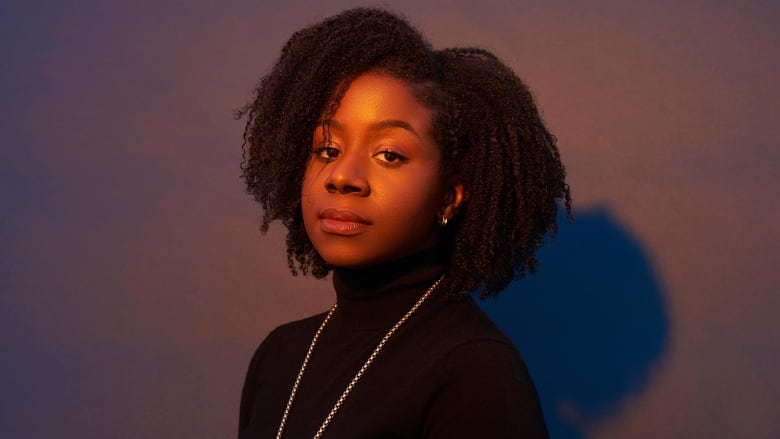'We can hardly keep them stocked': Why books by Black authors are flying off the shelves
Sales of anti-racism, social justice books jumped by 955% from May to June, says BookNet Canada


Sandy Hudson and her team of writers had barely kicked off their book tour in Toronto last February when the COVID-19 emergency forced them to cancel all stops in Alberta, Nova Scotia and the Yukon.
"It was disastrously short," lamented the co-editor of Until We are Free, a 344-page compilation of reflections on anti-Black racism in Canada, which features more than a dozen contributors.
Despite the pandemic restrictions and business closures, the book became a Canadian bestseller, raising more money than Hudson had anticipated for the Black Lives Matter cause.
"It's been bittersweet," said Hudson. "I say it's bittersweet because the cost, of course, is far too high."
Authors, bookstore owners and librarians have noticed an explosion of interest in anti-racism books as well as books written by Black authors over the past year, especially in the months following the death of George Floyd Floyd at the hands of police in Minneapolis on May 25.

BookNet Canada, a Toronto-based non-profit organization tracking the book industry, said sales of anti-racism and social justice books jumped by an unprecedented 955 per cent from May to June.
For those in the business of selling books, that intense spike was a surprise.
Shevaun Pierre, who runs a mobile bookstore called Notability, which specializes in amplifying Black voices, saw sales volumes grow by 70 per cent in 2020.
"So pre-pandemic, our engagement largely was from individuals of the African Caribbean diaspora," said Pierre, who is based in Toronto.
"Since then, as we've grown and we're more visible in terms of social media presence, word of mouth, Google, we've been able to engage a larger community and see an interest from different communities in the Black voice."

The long-time co-owner of the Knowledge Bookstore in Brampton, Ont., which has been selling African-centric books for 23 years, said he's never seen so many educators, non-profit organizations and corporations make bulk orders from his store.
"A lot of the anti-racist books, policing Black lives, those kinds of books," said Sean Liburd, whose store saw a 13 per cent jump in sales in 2020, despite many months of lockdown in the Peel region.
"In the 23 years, my customer base has been 95 per cent African people, right?" He said. "But now, I've had conversations with 'little old white ladies' — and that's how they describe themselves, as 'little old white ladies' — about what type of books to get, how to approach systemic racism."
While the initial frenzy in sales of anti-racism books has calmed down since the summer, libraries across Canada are noticing more holds for books written by Black authors, suggesting a lingering shift in interest in the Black literary voice.

"There's our Black History Month displays —we can hardly keep them stocked," said Julia McKnight, assistant manager of teen services at the Vancouver Public Library (VPL).
McKnight said the public library decided to introduce new programs for parents and kids, after its branches were inundated with requests for Black stories and resources on race.
"We've got a Zoom workshop for parents, caregivers and educators," she explained. "That's to support parents in exploring ideas and ways to have conversations with their kids about injustice and oppression. So we're looking at a number of picture books and ideas for how to have age-appropriate conversations with your kids."
Long waitlists
This boom in interest in Black literature means bestsellers such as The Vanishing Half by Brit Bennett, are accruing long waitlists at libraries.
The Calgary Public Library, for example, has over 200 copies of the 2020 acclaimed historical fiction in stock—110 in physical copies and another 97 in digital format. However, the combined waitlist in late February exceeded 1,500 people.
Even books by classic Black authors, such as Zora Neale Hurston and James Baldwin, are often in short supply.
Alpha Abebe, a professor at McMaster University who teaches courses on critical thinking and cross-cultural engagement, said what we're witnessing could be the publishing world's equivalent of Marvel's Black Panther effect in Hollywood.

"I think it's clear that there is a business case here," said Abebe.
"We saw in Hollywood for so many decades the excuse that was given in terms of why there were not more Black characters in film and TV, Black producers and storytellers, was that there just wasn't an audience for it. And I think we had a few high-profile TV shows and movies that did some myth busting in that case.
"I'm hoping for something similar to happen on the publishing front," she said.
Many publishers, from Scholastics to Simon and Shuster, have vowed to publish more Black voices in the coming months.
Abebe applauds those efforts, but said she wants to see deep, transformative change in the literary world.
"If you think you can read one book about how not to be a racist and then close it and then be done with it, then I think we're all in trouble," she said.
"For individual consumers, especially non-Black individuals, they need to think about reading Black books or books by Black authors as something that's beyond just an act of social justice and philanthropy. It's an investment in your own intellectual, social, and political intelligence."
Written and produced by Falice Chin.
For more stories about the experiences of Black Canadians — from anti-Black racism to success stories within the Black community — check out Being Black in Canada, a CBC project Black Canadians can be proud of. You can read more stories here.
